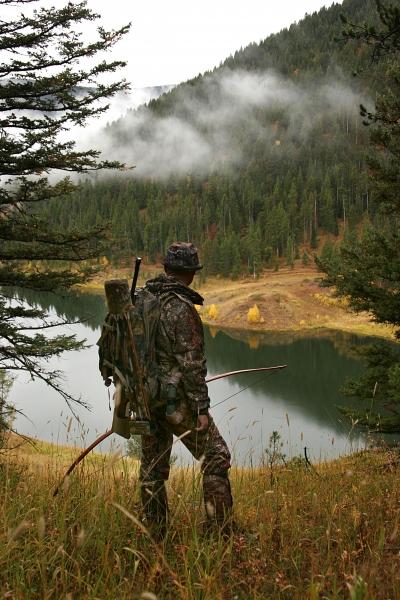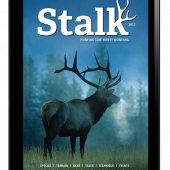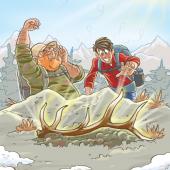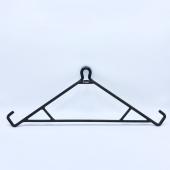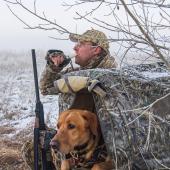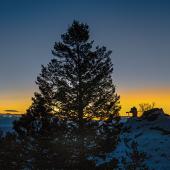Changing Seasons
The coming of the hunt.
Dusk comes earlier these days, the red sun casting long shadows across the valley. Dawn is a late riser; her timid light overtakes the darkness at a later hour each day.
It is late summer in southwest Montana. The nights are cooler, the air less heavy, the rivers low. Fishing is tough this time of year. Thousands of fishermen from around the world have pounded these waters for months, casting every known fly, lure, and bait past the fish of the Gallatin, the Madison, the Yellowstone. Many trout have learned their lesson, having been caught and released, often more than once. They are selective, fickle, and cautious. They rise to my fly and abruptly turn, unimpressed by my imperfect clumps of feather and steel.
Still I fish, and still I catch fish. But not like before. The heavy 20-incher is a rare find. He’s been replaced by hordes of ravenous yearlings that fight for my fly. I let them fight. My mind is on something else…
The trees look different these days. Their trunks have hardened somehow, their branches more brittle. It’s as if they’re preparing for the oncoming change of seasons. Their leaves will soon fall, and the bugles of the elk will reverberate off their lifeless boughs. Beneath, squirrels will gather nuts and cones, making great piles in hollow trunks. I will carefully clean my fly rod, lubricate my reel, and place them in the closet. My fingers will close around the cold, hard grip of my bow.
But it will not remain cold. In my hand it will come alive; it will become an extension of my body, an inseparable appendage that responds like any other.
Very soon will I be in the woods—climbing steep ridges, creeping through thickets, traversing deep ravines. I will breathe the cool, clean air and smell the fragrant evergreens as they sway in the autumn breeze. The forest will bustle with activity as its residents prepare for the coming of winter. Unlike the looming pines, they face an uncertain fate, and only careful preparation, rigid determination, and luck will see them through the unforgiving months ahead.
I too prepare. My evenings are no longer spent on the river; I am in the back yard, honing my shooting skills. I fling arrow after arrow at the hay bales until my arm can no longer draw back the string. I waterproof my boots and wash my hunting clothes, eliminating all human scent. I hone my knife to razor-sharpness. I gaze at the mountains with an anticipation that never seems to lose its potency. It draws my imagination from whatever task is at hand to visions of six-point bulls, their enormous racks scraping the ground as they point their heads to the sky and bugle with an unearthly intensity. My pulse quickens as I play out the fantasy hunt in my mind.
But I must not dream too much—there are still many arrows to be flung, many more preparations to be made. If I am to fill the freezer this year, if I am to amplify my dreams to the volume of reality, I must not underestimate my ambition. The elk is a worthy opponent, and infiltrating the wild and rugged world he calls home will not be easy. Like the busy squirrel, I must stack the odds in my favor. So I practice my shooting, sharpen my broadheads, and gather my wits. The hunt is coming. I will be ready.


